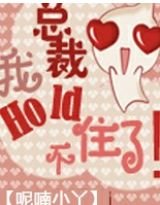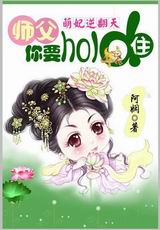aphorisms-第7部分
按键盘上方向键 ← 或 → 可快速上下翻页,按键盘上的 Enter 键可回到本书目录页,按键盘上方向键 ↑ 可回到本页顶部!
————未阅读完?加入书签已便下次继续阅读!
there are defluxions from the head。
31。 When there is a farinaceous sediment in the urine during
fever; it indicates a protracted illness。
32。 In those cases in which the urine is thin at first; and the
sediments become bilious; an acute disease is indicated。
33。 In those cases in which the urine becomes divided there is great
disorder in the body。
34。 When bubbles settle on the surface of the urine; they indicate
disease of the kidneys; and that the complaint will be protracted。
35。 When the scum on the surface is fatty and copious; it
indicates acute diseases of the kidneys。
36。 Whenever the aforementioned symptoms occur in nephritic
diseases; and along with them acute pains about the muscles of the
back; provided these be seated about the external parts; you may
expect that there will be an abscess; but if the pains be rather about
the internal parts; you may also rather expect that the abscess will
be seated internally。
37。 Haematemesis; without fever; does not prove fatal; but with
fever it is bad; it is to be treated with refrigerant and styptic
things。
38。 Defluxions into the cavity of the chest suppurate in twenty
days。
39。 When a patient passes blood and clots; and is seized with
strangury and pain in the perineum and pubes; disease about the
bladder is indicated。
40。 If the tongue suddenly lose its powers; or a part of the body
become apoplectic; the affection is of a melancholic nature。
41。 In hypercatharsis; of old persons; hiccup supervening is not a
good symptom。
42。 In a fever; is not of a bilious nature; a copious allusion of
hot water upon the head removes the fever。
43。 A woman does not become ambidexterous。
44。 When empyema is treated either by the cautery or incision; if
pure and white pus flow from the wound; the patients recover; but if
mixed with blood; slimy and fetid; they die。
45。 When abscess of the liver is treated by the cautery or incision;
if the pus which is discharged be pure and white; the patients
recover; (for in this case it is situated in the coats of the
liver;) but if it resemble the lees of oil as it flows; they die。
46。 Pains of the eyes are removed by drinking undiluted wine;
plenteous bathing with hot water; and venesection。
47。 If a dropsical patient be seized with hiccup the case is
hopeless。
48。 Strangury and dysuria are cured by drinking pure wine; and
venesection; open the vein on the inside。
49。 It is a good sign when swelling and redness on the breast
seize a person very ill of quinsy; for in this case the disease is
diverted outwardly。
50。 When the brain is attacked with sphacelus; the patients die in
three days; or if they escape these; they recover。
51。 Sneezing arises from the head; owing to the brain being
heated; or the cavity (ventricle) in the head being filled with
humors; the air confined in it then is discharged; and makes a
noise; because it comes through a narrow passage。
52。 Fever supervening on painful affections of the liver removes the
pain。
53。 Those persons to whom it is beneficial to have blood taken
from their veins; should have it done in spring。
54。 In those cases where phlegm is collected between the diaphragm
and the stomach; and occasions pain; as not finding a passage into
either of the cavities; the disease will be carried off if the
phlegm be diverted to the bladder by the veins。
55。 When the liver is filled with water and bursts into the
epiploon; in this case the belly is filled with water and the
patient dies。
56。 Anxiety; yawning; rigor;…wine drunk with an equal proportion
of water; removes these complaints。
57。 When tubercles (phymata) form in the urethra; if they
suppurate and burst; the pain is carried off。
58。 In cases of concussion of the brain produced by any cause; the
patients necessarily lose their speech。
59。 In a person affected with fever; when there is no swelling in
the fauces; should suffocation suddenly come on; and the patient not
be able to swallow; except with difficulty; it is a mortal symptom。
59a。 In the case of a person oppressed by fever; if the neck be
turned aside; and the patient cannot swallow; while there is no
swelling in the neck; it is a mortal sign。
60。 Fasting should be prescribed the those persons who have humid
flesh; for fasting dries bodies。
61。 When there are changes in the whole body; and the body becomes
sometimes cold and sometimes hot; and the color changes; a
protracted disease is indicated。
62。 A copious sweat; hot or cold; constantly flowing; indicates a
superabundance of humidity; we must evacuate then; in a strong
person upward; and in a weak; downward。
63。 Fevers; not of the intermittent type; if they become exacerbated
every third day are dangerous; but if they intermit in any form
whatever; this shows that they are not dangerous。
64。 In cases of protracted fever; either chronic abscesses or
pains in the joints come on。
65。 When chronic abscesses (phymata) or pains in the joints take
place after fevers; the patients are using too much food。
66。 If one give to a person in fever the same food which is given to
a person in good health; what is strength to the one is disease to the
other。
67。 We must look to the urinary evacuations; whether they resemble
those of persons in health; if not at all so; they are particularly
morbid; but if they are like those of healthy persons; they are not at
all morbid。
68。 When the dejections are allowed to stand and not shaken; and a
sediment is formed like scrapings (of the bowels); in such a case it
is proper to purge the bowels; and if you give ptisans before purging;
the more you give the more harm you will do。
69。 Crude dejections are the product of black bile; if abundant;
of more copious; and if deficient; of less copious collections of it。
70。 The sputa in fevers; not of an intermittent type; which are
livid; streaked with blood; and fetid; are all bad; it is favorable
when this evacuation; like the urinary and alvine; passes freely;
and whenever any discharge is suppressed and not purged off it is bad。
71。 When you wish to purge the body; you must bring it into a
state favorable to evacuations; and if you wish to dispose it to
evacuations upward; you must bind the belly; and if you wish to
dispose it to evacuations downward; you must moisten the belly。
72。 Sleep and watchfulness; both of them; when immoderate;
constitute disease。
73。 In fevers which do not intermit; if the external parts be
cold; and the internal burning hot; and fever prevail; it is a
mortal sign。
74。 In a fever which does not intermit; if a lip; the nose; or an
eye be distorted; if the patient lose his sense of sight or of
hearing; while now in a weak state;…whatever of these symptoms
occurs it is mortal。
75。 Upon leucophlegmatia dropsy supervenes。
76。 Upon diarrhoea dysentery。
77。 Upon dysentery lientery。
78。 Upon sphacelus exfoliation of the bone。
79 and 80。 Upon vomiting of blood consumption; and a purging of
pus upward; upon consumption a defluxion from the head; upon a
defluxion diarrhoea; upon diarrhoea a stoppage of the purging
upward; upon the stoppage of it death。
81。 In the discharges by the bladder; the belly; and the flesh
(the skin?) if the body has departed slightly from its natural
condition; the disease is slight; if much; it is great; if very
much; it is mortal。
82。 Persons above forty years of age who are affected with frenzy;
do not readily recover; the danger is less when the disease is cognate
to the constitution and age。
83。 In whatever diseases the eyes weep voluntarily; it is a good
symptom; but when involuntarily; it is a bad。
84。 When in quartan fevers blood flows from the nostrils it is a bad
symptom。
85。 Sweats are dangerous when they do not occur on critical days;
when they are strong; and quickly forced out of the forehead; either
in the form of drops or in streams; and if excessively cold and
copious; for such a sweat must proceed from violence; excess of
pain; and prolonged squeezing (affliction?)。
86。 In a chronic disease an excessive flux from the bowels is bad。
87。 Those diseases which medicines do not cure; iron (the knife?)
cures; those which iron cannot cure; fire cures; and those which
fire cannot cure; are to be reckoned wholly incurable。
THE END
。
![[psycho-pass]不完全刑事手册 作者:月_殇封面](http://www.nstxt.com/cover/noimg.jpg)

